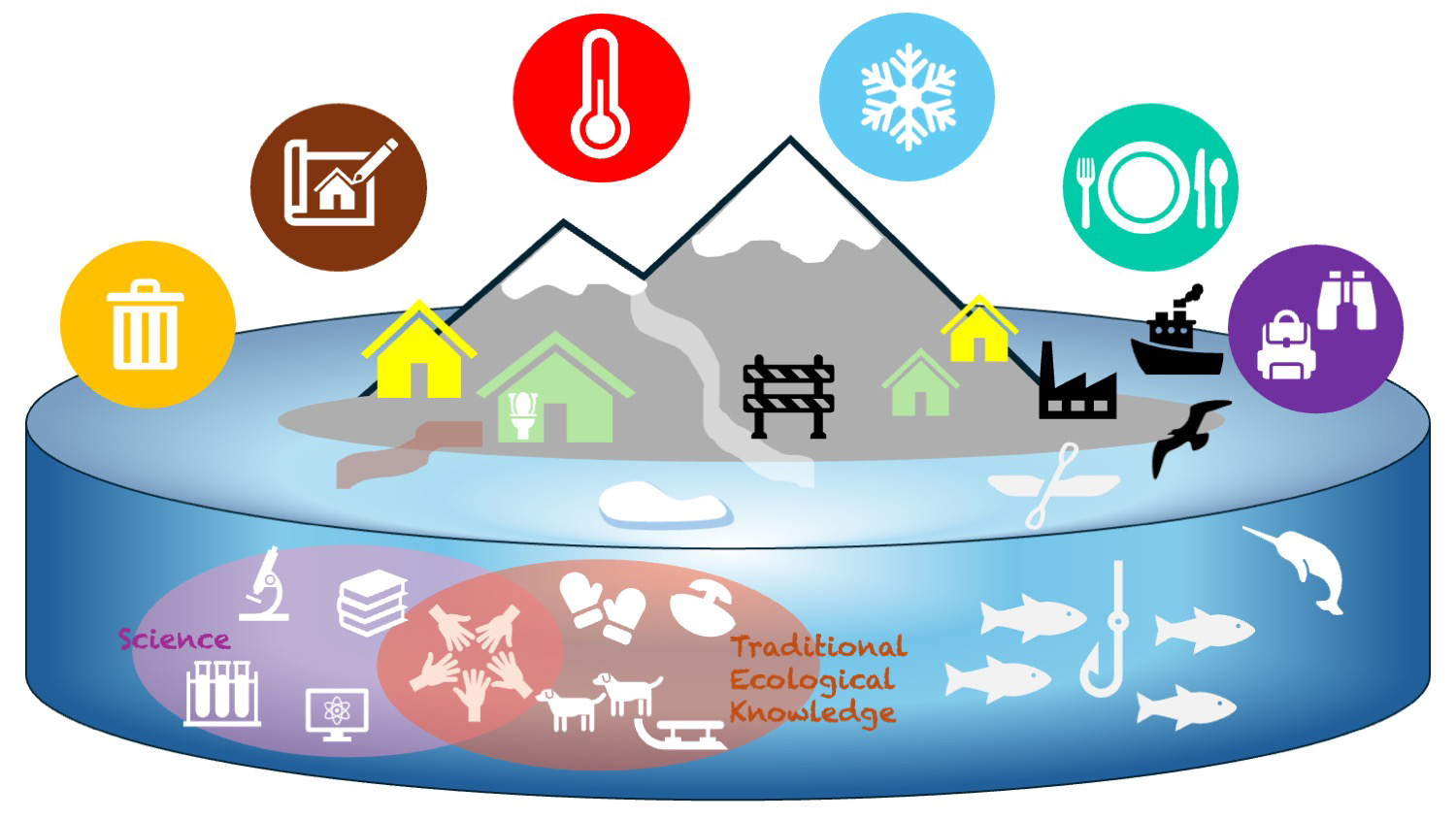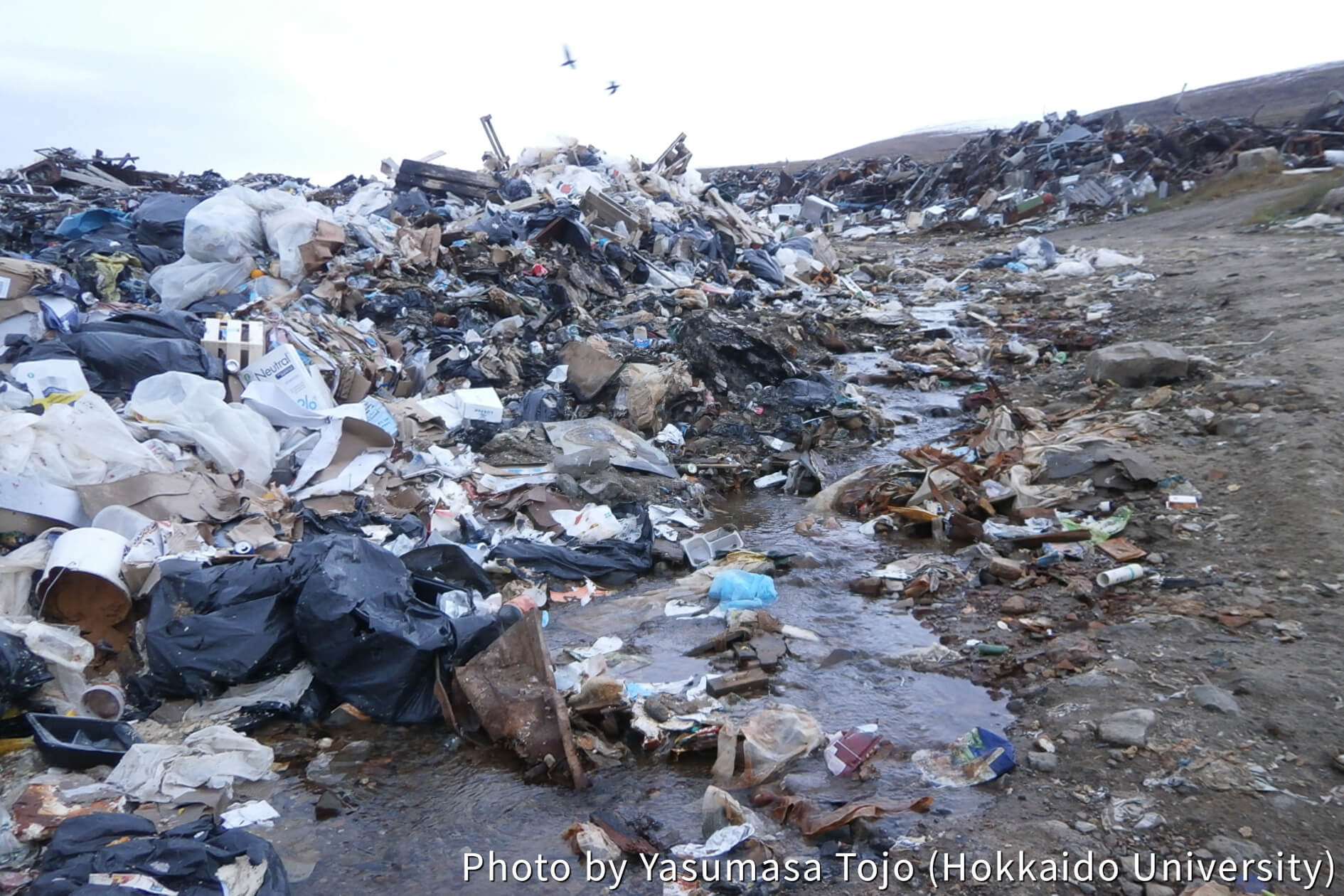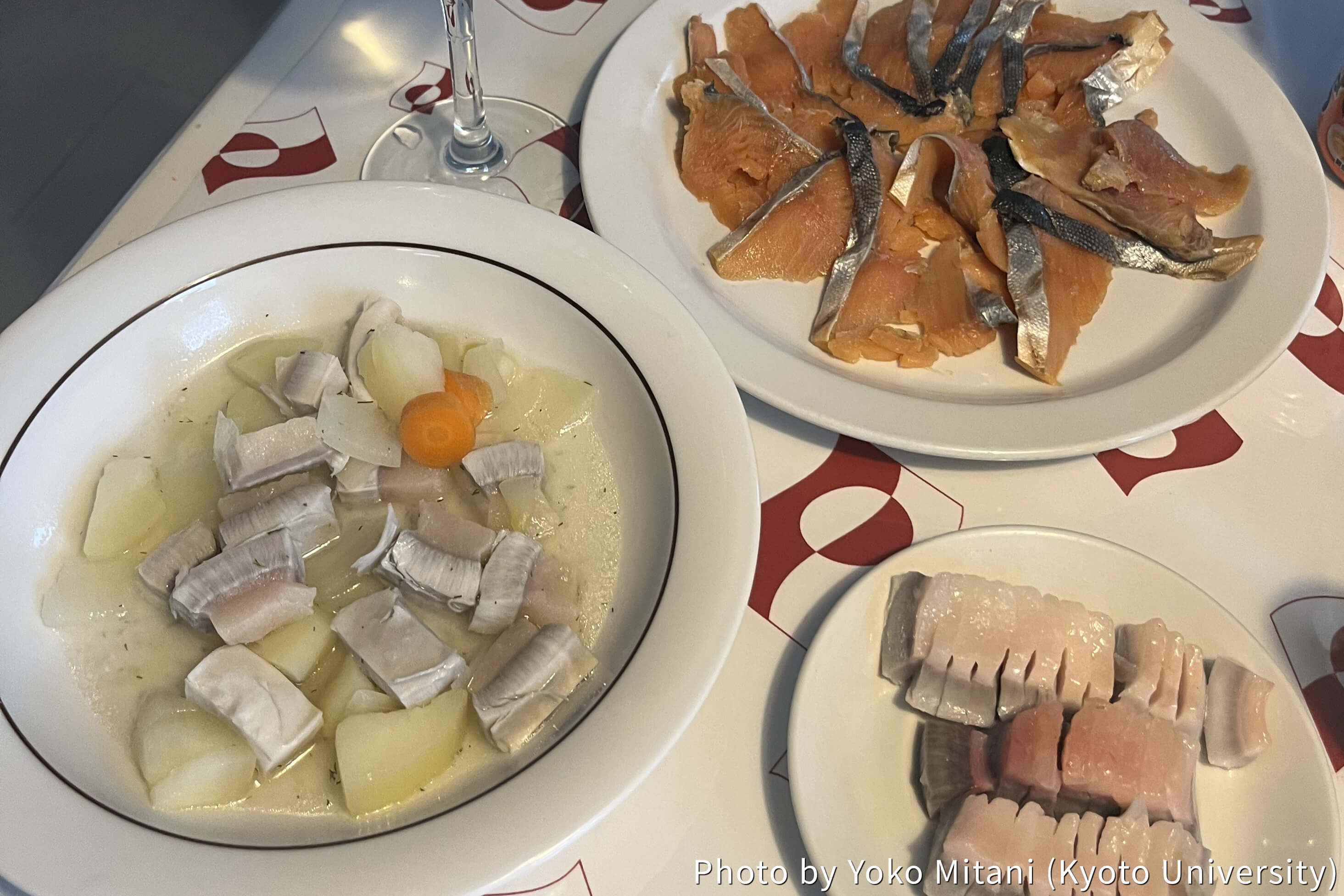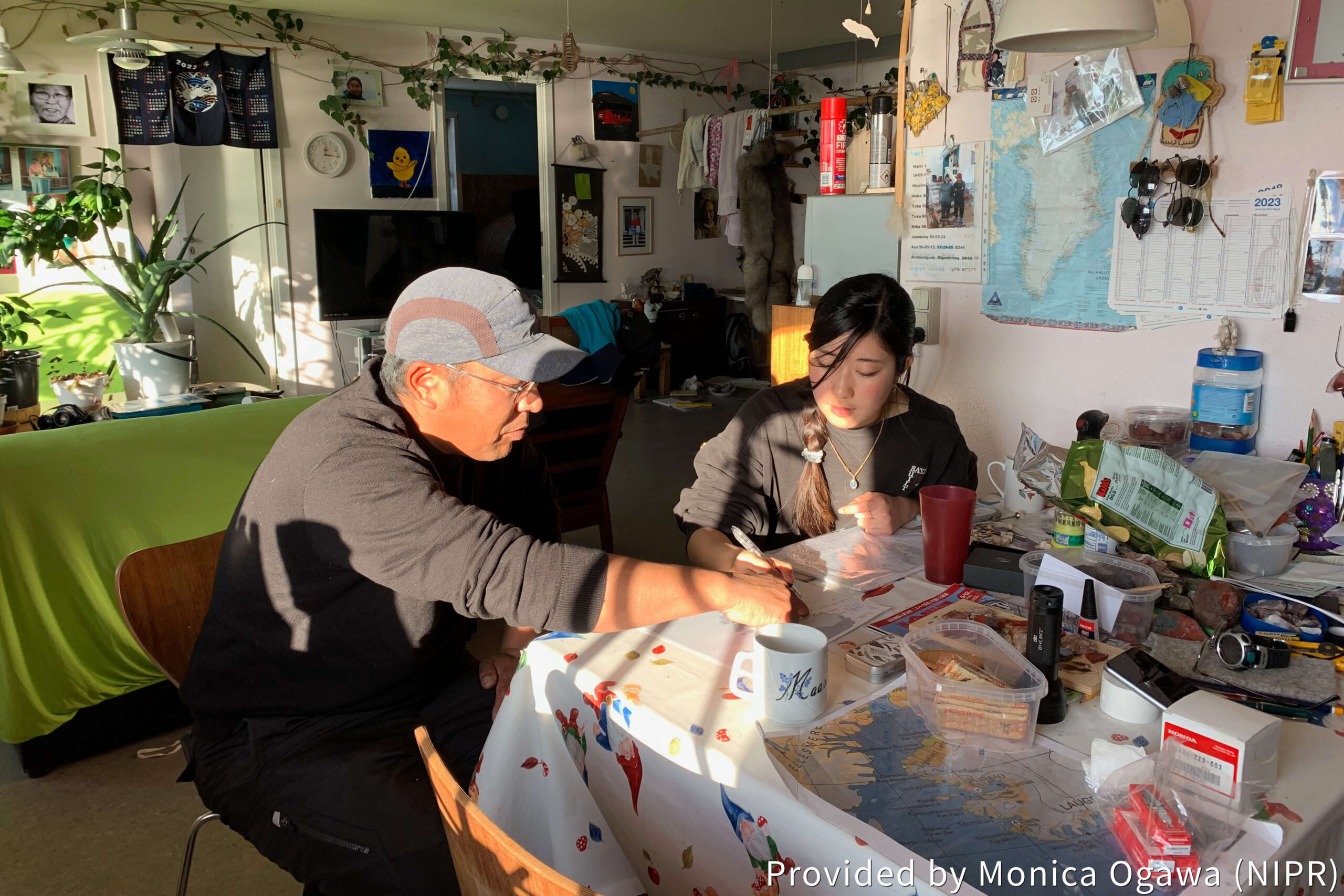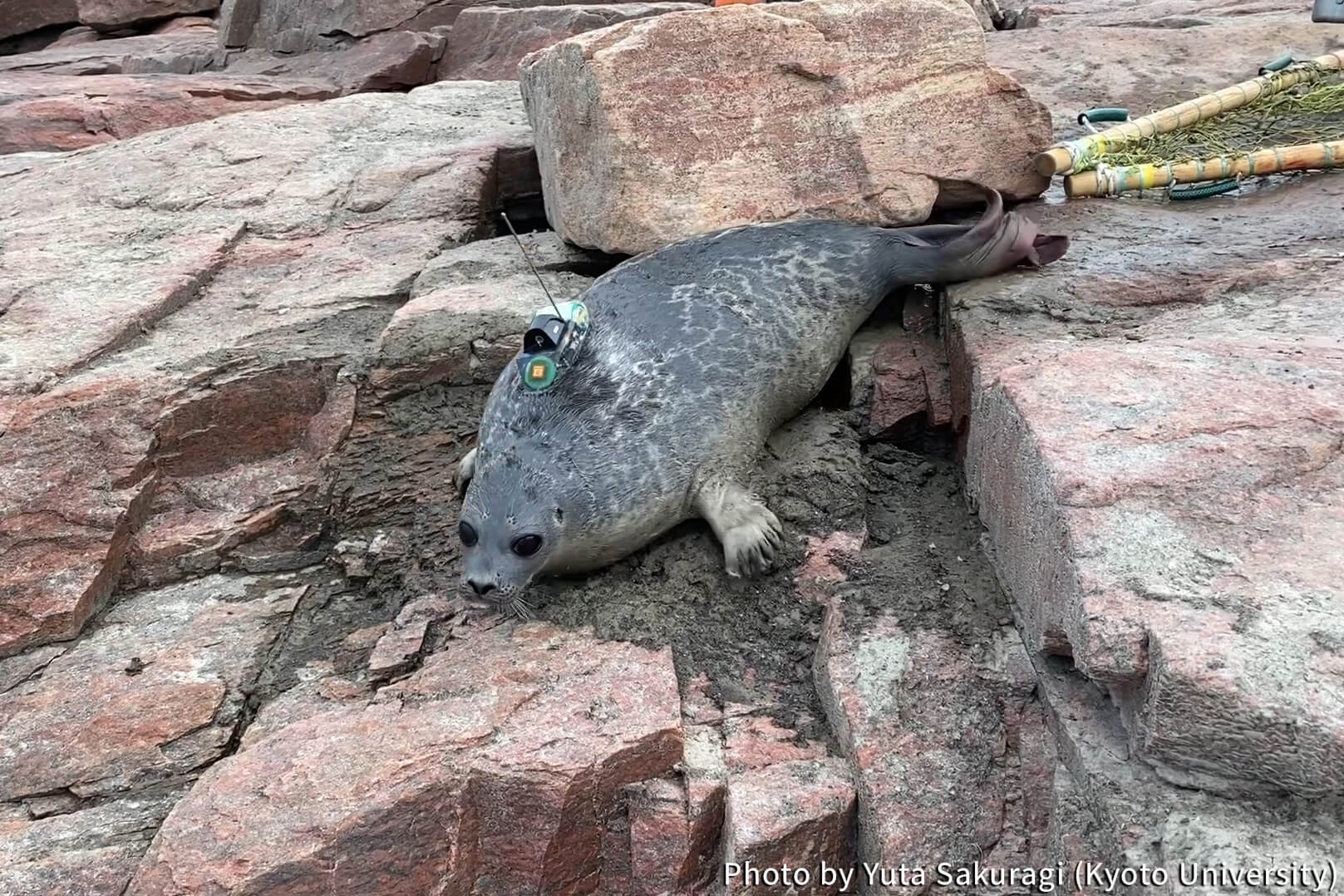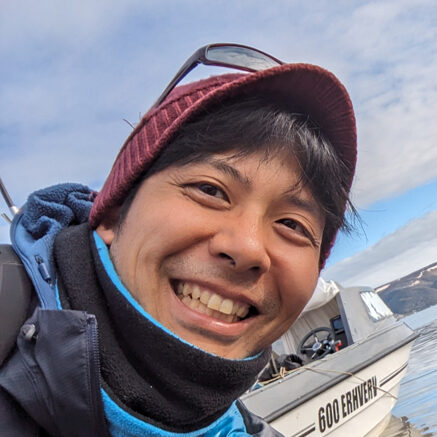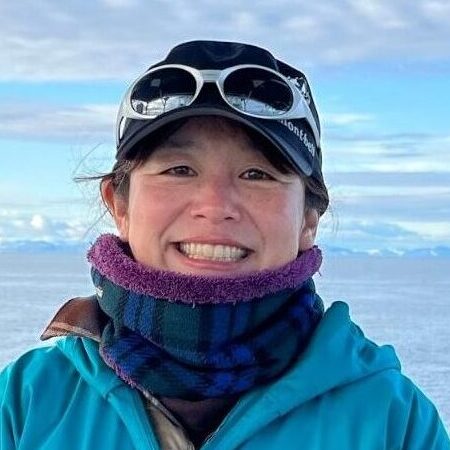Coastal Community
Changes in snow, ice, oceans, and ecosystems in the Arctic coastal region and sustainable environment-society systems
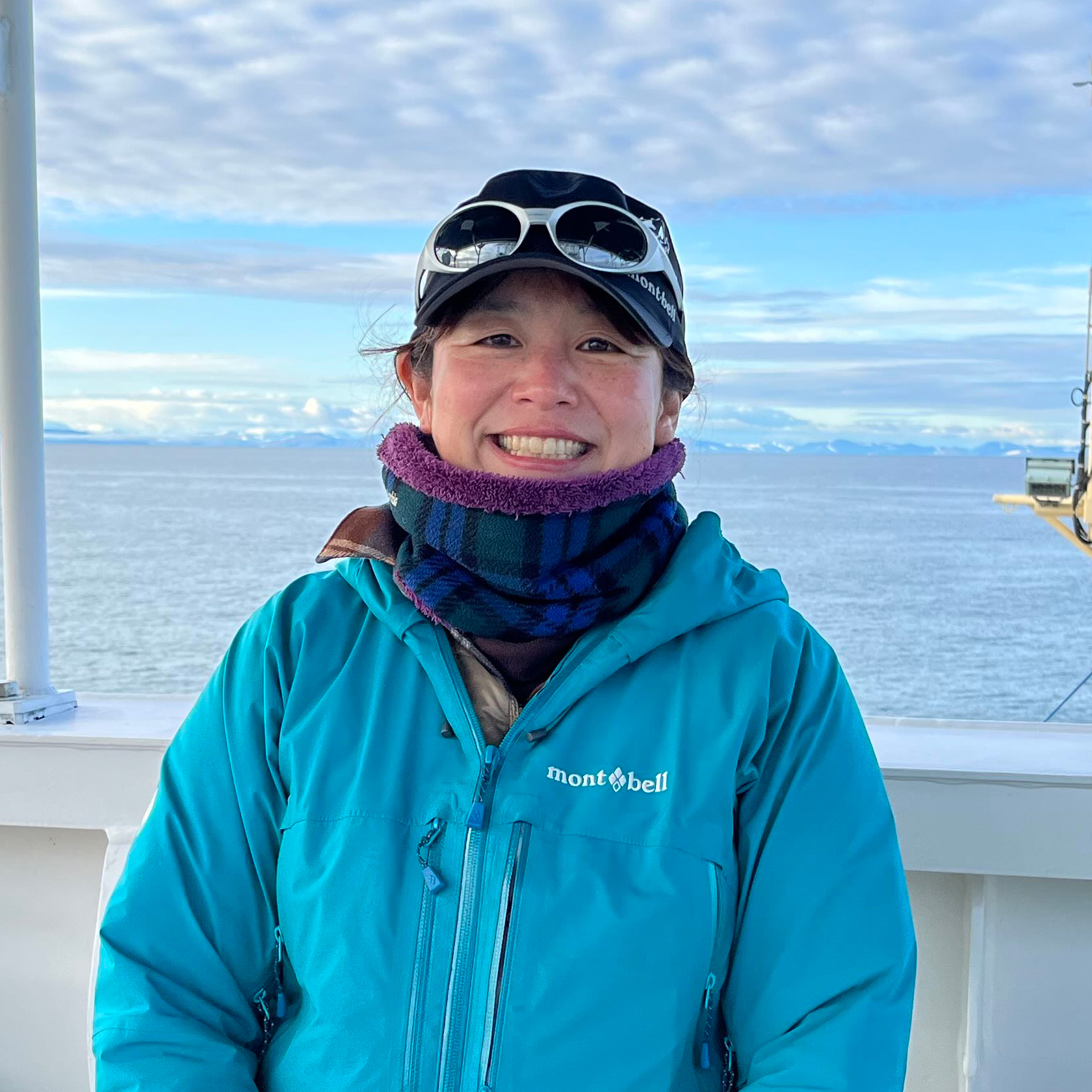
PI: Yoko Mitani (Kyoto University)
Rapid Arctic warming is having profound impacts on both natural environments and local communities, particularly in northwestern Greenland’s Qaanaaq region. In this area, melting snow and ice and changes in ocean conditions are significantly affecting ecosystems as well as the social, cultural, and economic lives of residents. Over the past 15 years, research projects such as GRENE, ArCS, and ArCS II have revealed key issues including glacier–ocean interactions, disaster risks, challenges in housing and waste management, and social concerns related to shifts toward cash-based economies and growing anxiety over environmental degradation.
This research aims to address these pressing challenges and contribute to enhancing Arctic sustainability. It focuses on quantitatively investigating environmental changes in snow, glaciers, and marine systems using satellite data and field observations. Ocean monitoring will involve collecting physical, chemical, and biological data—including measurements of water temperature and salinity, sighting surveys, acoustic monitoring, and hydroacoustic surveys using the echosounder. Through these studies, researchers seek to clarify connections and dynamics across multiple trophic levels within the marine ecosystem.
Additionally, the project will analyze chemical tracers and microplastics to evaluate the impacts of human activities on ecosystems and local communities. Promoting citizen science, it encourages citizen science, aiming to propose sustainable resource management approaches and to design disaster mitigation measures and energy-efficient living environments that respect traditional knowledge and local culture.
This project advances in collaboration with multiple research initiatives. It works with the Biodiversity Project on pollutant analyses and joint observations using research vessels like T/S Oshoro-maru and RV Mirai. Through cooperation with the Indigenous Peoples Project, it seeks to identify and address sustainability challenges facing coastal societies via transdisciplinary research. The deployment of stationary acoustic recorders for marine monitoring ties into the “Arctic Ocean Use and Sea Ice Change Prediction” project, contributing to solutions for underwater noise issues along Arctic shipping routes. Collaboration with the the Aerosol Project aims to quantify and understand glacier and ice sheet dynamics, which inform predictions related to sea-level rise, ocean changes, and flood hazards. Furthermore, the project engages with the History Project and the Governance Project to document the historical use and international conservation of marine mammals, supporting discussions on food sovereignty and security. Data sharing with the Climate Disasters Project focuses on landslides, floods, and tsunami risks, while cooperation with the Land Life Environment Project addresses indoor environments and disaster resilience.
Collectively, these efforts position the Qaanaaq region as a model case for studying the complex interplay between rapid climate change and Arctic communities, contributing valuable insights for sustainability in the Arctic and for Japanese society.
Sub-Theme Coordinator (Sub PI)
-
 Tomiyasu Makoto (Hokkaido University)
Tomiyasu Makoto (Hokkaido University) -
 Uetake Jun (Hokkaido University)
Uetake Jun (Hokkaido University) -
 Yasumasa Tojo (Hokkaido University)
Yasumasa Tojo (Hokkaido University) -
 Yoko Mitani (Kyoto University)
Yoko Mitani (Kyoto University)
-
Press Releases
-
Reports
Cooperative Institutions
Greenland Institute of Natural Resources
Members
| Sub-Theme 1 | |
|---|---|
| Name | Research Institute |
| Makoto Tomiyasu | Hokkaido Univ. |
| Atsushi Yamaguchi | Hokkaido Univ. |
| Jean-Baptiste Thiebot | Hokkaido Univ. |
| Kohei Hasegawa | Hokkaido Univ. |
| Monica Ogawa | NIPR |
| Mayuko Otsuki | Hokkaido Univ. |
| Kohei Matsuno | Hokkaido Univ. |
| Daiki Nomura | Hokkaido Univ. |
| Tohru Mukai | Hokkaido Univ. |
| Sasaki Takafumi | Hokkaido Univ. |
| Ayaka Matsuda | Hokkaido Univ. |
| Yushima Asuka | Hokkaido Univ. |
| Masaki Yamano | Hokkaido Univ. |
| Shoma Tsujimura | Hokkaido Univ. |
| Sub-Theme 2 | |
|---|---|
| Name | Research Institute |
| Jun Uetake | Hokkaido Univ. |
| Shin Sugiyama | Hokkaido Univ. |
| Motoshi Nishimura | Shinshu Univ. |
| Tatsuya Watanabe | Kitami Institute of Technology |
| Evgeny Podolskiy | Hokkaido Univ. |
| Takuro Imazu | Hokkaido Univ. |
| Kotaro Yazawa | Hokkaido Univ. |
| Fumi Mikome | Hokkaido Univ. |
| Tomohiro Nakayama | Hokkaido Univ. |
| Sub-Theme 3 | |
|---|---|
| Name | Research Institute |
| Yasumasa Tojo | Hokkaido Univ. |
| Tatsuya Fukazawa | Hokkaido Univ. |
| Taro Mori | Hokkaido Univ. |
| Gaku Tanaka | Hokkaido Univ. |
| Sub-Theme 4 | |
|---|---|
| Name | Research Institute |
| Yoko Mitani | Kyoto Univ. |
| Taro Yamauchi | Hokkaido Univ. |
| Yuta Sakuragi | Kyoto Univ. |
| Koyano Mari | Hokkaido Univ. |
| Ryo Kusaka | Hokkaido Museum of Northern Peoples |
| Sara Kim | Kyoto Univ. |

